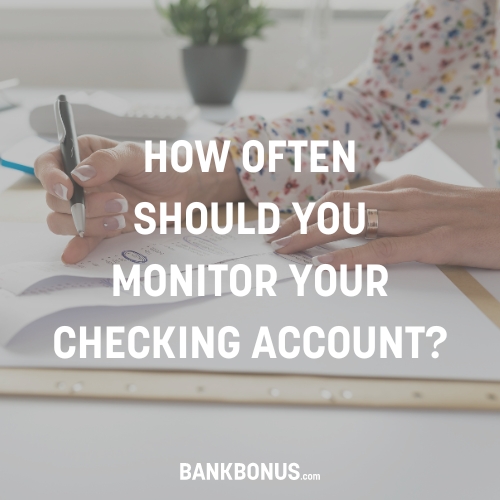Despite what people may think, closing a bank account is not complicated. While it might seem intimidating, it is a relatively quick and easy process.
In this article, we’ll take a look at what you should know about closing a bank account, including what to be prepared for, and how to avoid any unnecessary hassle.
Steps to Closing A Bank Account
Before closing a bank account, you need to take several steps to ensure as smooth a transition as possible. While not everyone will need to follow all the steps, running through them can help you make sure that you do not miss out on anything important.
- Step 1: Go through existing agreements
- Step 2: Open a new account
- Step 3: Make a list of all scheduled payments and deposits
- Step 4: Update bank details
- Step 5: Check for pending items
- Step 6: Transfer any remaining funds
Step 1: Go through existing agreements
The first order of business you need to take care of is to go through any agreements with your existing account. Look for any clauses that can stop you from closing the account.
For example, if you have recently taken an offer, you might need to keep your account open for a while longer to see the money. The same is true for recently-opened accounts.
Step 2: Open a new account
Once you’ve confirmed that the account can be safely closed, it is time to open a new account. Opening the new account at this stage will give you enough time for a smooth transfer.
Many banks will run your information through ChexSystems before approval is granted, so you’ll need to make sure your finances are in good shape to avoid rejection.
Be sure to keep a copy of any new agreements signed, and store them somewhere safe on your computer or in a file if they are printed.
Make a note of your bank account details such as your account number and keep them somewhere where you can easily reference them.
Step 3: Make a list of all scheduled payments and deposits
If you are receiving deposits in your account, or have any scheduled outgoing payments, make a list of them. This can include anything from mortgage payments to your gym membership to receiving your pay via direct deposit.
Go through the transactions on your monthly bank statement as it’s easy to miss automatic payments and other automated transactions.
Step 4: Update bank details
Next, you’ll need to update the bank details of all scheduled payments and deposits. If you receive your pay or government assistance directly into your account, make sure you let them know the new bank account’s details.
The same goes for any scheduled payments taking money out of your old account. If you have any apps such as PayPal connected to your account, remember to update that information as well.
Step 5: Check for pending items
You will need to check for any pending items, including outstanding transactions. If your account is overdrawn and has a negative balance, you will not be able to close it until the overdue amount is settled.
Step 6: Transfer any remaining funds
Once all transactions are cleared, you can proceed to transfer any remaining balance from your old bank account to your new account or withdraw it. Keep in mind that if you transfer funds to your new account, the money might take some time to transfer.
Once these preliminary steps have been completed, it is time to proceed forward with the account closure.
How To Close Your Bank Account
Actually closing the account is pretty easy, but before taking the plunge and closing your old account, it might be worth double-checking to ensure that you didn’t miss anything.
Make sure all payments and deposits are correctly routed to the new account to avoid any late payment fees or missing a paycheck.
Close the Account Online or In-Person
Check to see if you can close the bank account online through the mobile banking app or website, which can make the process much quicker and less awkward.
Keep in mind that not all banks handle this the same way. While some banks might very well allow you to close the account online through their app, others might require you to send a written request or fill out a special form.
If you’re in doubt about how your bank handles this, it is always best to get in touch and ask for guidance.
Many banks and credit unions also offer extensive help and written documentation on their website.
Always read the fine print to ensure that you’re following the correct procedure and not leaving any unfinished business in the process.
Ask for Written Confirmation
Once the account is closed, ask for written confirmation. While it may seem unnecessary, the confirmation will be valuable should the bank not follow through on your request, leaving you exposed.
Having the written confirmation will help you make sure that you have all of your bases covered.
Destroy All Checks and Debit Cards From The Old Account
Make sure you tear any checkbooks of your old closed account and destroy any linked cards. This will help you make sure you don’t accidentally use old checks or cards once you switch over to the new account.
Some Accounts Need Special Consideration
Not all accounts are created equal, and some may need special attention. Let’s look at special accounts and situations that might involve some extra steps:
- Inactive Account: If your account is inactive, you might need to reactivate it before closing it.
- Joint Account: Joint accounts might require both account holders to close the account, but this can vary from one financial institution to the next.
- Account Holder Passed Away: State law may impose some restrictions on how this is handled, so you might want to speak to an attorney.
Reasons To Close A Bank Account
Bank accounts, such as savings accounts or checking accounts, can get closed for various reasons – even no reason at all. You do not need to explain why you are closing a bank account.
Even so, it can be beneficial to understand why people close bank accounts, especially if you’re still unsure about closing the account.
- Moving: Moving is one of the main reasons people close their bank accounts. This is especially true if they move to an area where their current bank does not have a presence. While many banks have great mobile apps and online banking systems, many people still prefer to visit a local branch.
- Getting better interest rates at another bank: Different banks offer very different interest rates which can make quite a difference. Online banks are known to offer more advantageous rates, so many people are moving to this kind of bank.
- Changing to an online bank: While online banks are relatively new, they have been gaining loads of traction thanks to low fees and high-interest rates. They also offer more substantial mobile apps since there are no branches to visit, so everything must be done online.
- To earn a welcome bonus: Banks attract new account holders by offering promotions, many of which include free cash, better interest rates, and credit card offers. These bank promotions are often attractive enough for people to close their current bank account and open a new one.
- Avoiding fees: Many banks try to differentiate themselves by lowering or removing specific fees such as overdraft fees and maintenance fees to make their accounts more attractive. Since we all have different financial requirements, opening a new bank account with lower fees or no fees can help you save some money.
- Opening a joint account: Opening a joint account is a big step but shows financial commitment and understanding to the person you’re opening the account with. While some people will still want to retain their old personal accounts, others prefer to streamline their finance and keep just one account.
- Dissatisfaction: There are many reasons why customers might be unhappy with the service they are getting from their current bank. From bad customer service to mobile apps that are not feature-rich enough, many people switch banks to get better service than what they’re currently receiving.
Frequently Asked Questions
Can you close a bank account online?
It depends. Some banks allow you to close an account through their web banking facilities, while others will require you to fill in a form or submit a written request. If you are unsure about which procedure your bank follows, you can try looking at their online FAQs or try calling their support phone number. Alternatively, you can try sending the bank an email.
Is it bad to close a bank account?
It’s perfectly fine to close a bank account, and people do it for many reasons. From opening an account that has lower fees or a higher interest rate to opening an account with a bank that has a branch closest to you, closing a bank account is a perfectly normal thing to do – and can end up saving you a lot of money.
How do I permanently close my bank account?
Different banks follow different procedures, so this may vary according to the financial institution you bank with. It’s important to follow all preliminary steps before closing the account. These include checking for recurring payments and deposits, updating 3rd parties with the new account information, and ensuring no pending transactions.
Make sure you follow the bank’s procedure and do not forget to ask for written confirmation as recommended by the Consumer Financial Protection Bureau.
How long does it take to close a bank account?
Once you have completed all tasks from your end, it’s up to the bank to close the account. Once you have the written confirmation that the account has been closed, you are good to go. Keep in mind that the bank is required by law to hold on to records of old accounts for five years at the very least.
Is It A Good Idea To Close A Bank Account?
While it might seem like a big deal, closing a bank account is fine and shouldn’t worry you, even more so if you are doing it to improve your personal finances.
A new bank account can provide you with the financial tools you need to improve your finances, and ultimately your credit score.
The important thing here is to keep one eye on your short-term financial needs and the other on your long-term goals.
Tools such as mobile banking can help you stay on top of your finances, with features such as online bill payments making it easier to keep everything up.
It is also worth mentioning at this point that making sure your new account is FDIC or NCUA insured will help you make sure that you’re covered should something happen to the new bank or credit union.





Comments are closed.
Comments are closed here.